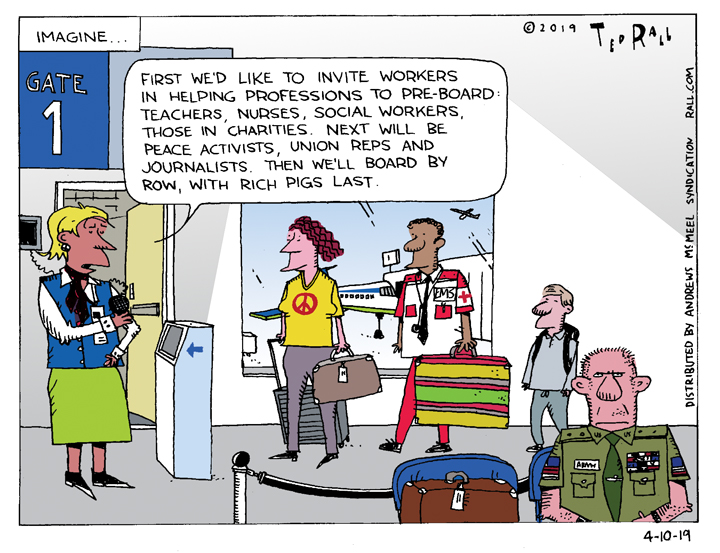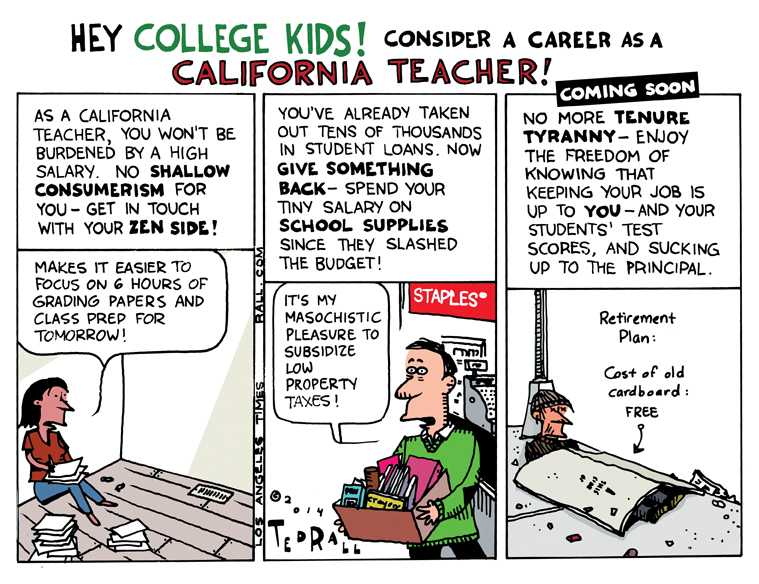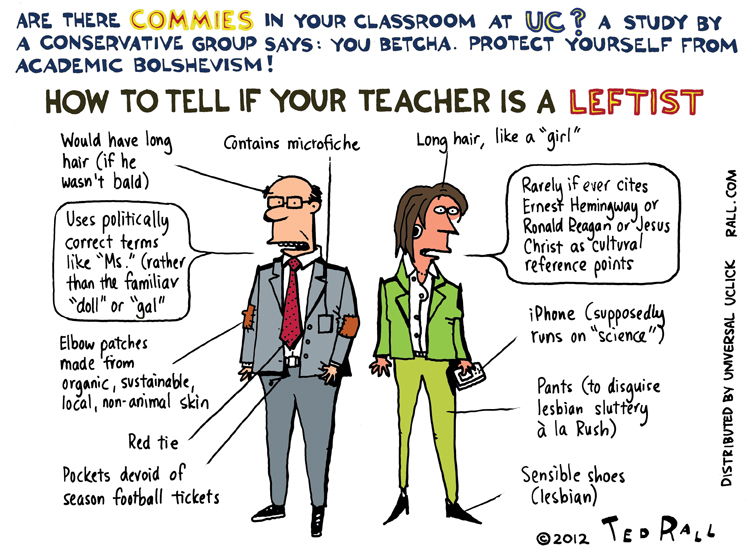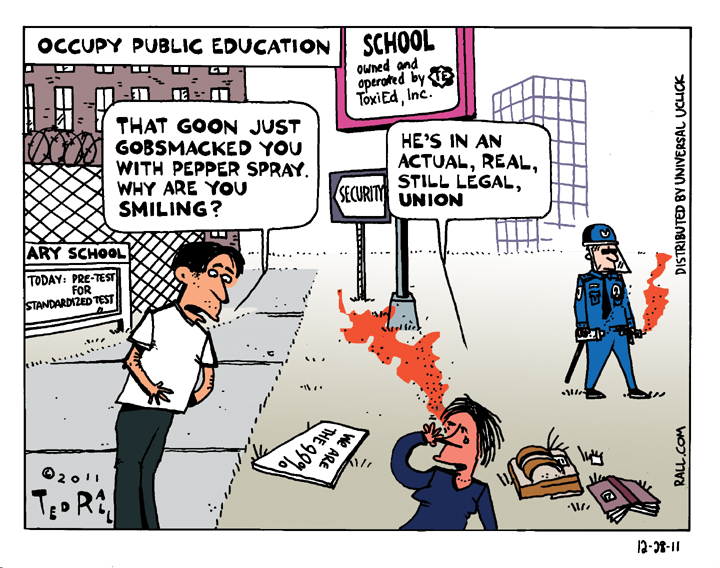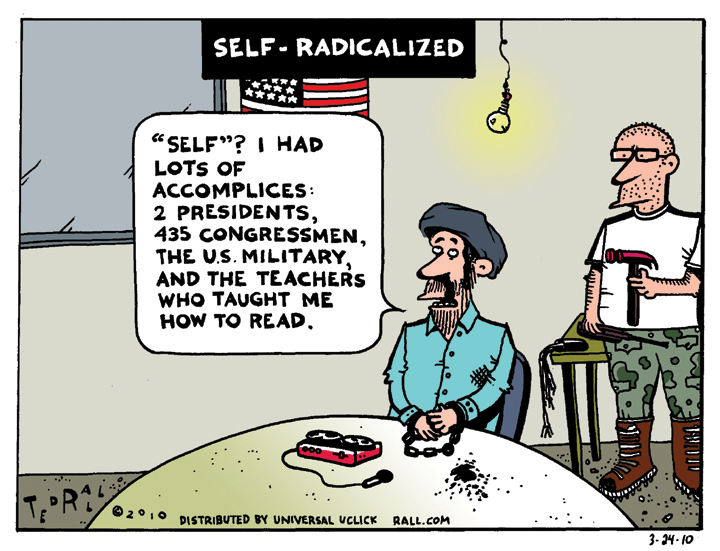Recently I heard an airline gate agent reading the familiar announcement that active-duty military personnel were welcome to board before everyone else and I asked myself, why?
SYNDICATED COLUMN: Two Stories the Same Day Show That the U.S. is Rotten to the Core

Still think the United States is governed by decent people? That the system isn’t totally corrupt and obscenely unfair?
Two stories that broke April 23rd ought to wake you up.
Story 1: President Obama admitted that one of his Predator drones killed two aid workers, an American and an Italian, who were being held hostage by Al Qaeda in Pakistan. As The Guardian reports, “The lack of specificity [about the targets] suggests that despite a much-publicized 2013 policy change by Barack Obama restricting drone killings by, among other things, requiring ‘near certainty that the terrorist target is present,’ the U.S. continues to launch lethal operations without the necessity of knowing who specifically it seeks to kill, a practice that has come to be known as a ‘signature strike.'”
“Lack of specificity” is putting it mildly. According to a report by the group Reprieve, the U.S. targeted 41 “terrorists” — actually, enemies of the corrupt Yemeni and Pakistani regimes — with drones during 2014. Thanks to “lack of specificity,” a total of 1,150 people were killed. Which doesn’t even include the 41 targets, many of whom got away clean.
Obama’s hammy pretend grief was Shatner-worthy. Biting his lip in that sorry/not sorry Bill Clinton way, the president summed up mock sadness for an event that happened back in January. Come on, dude. You seriously expect us to believe you’ve been all weepy for the last three months, except for all those speeches and other public appearances in which you were, you know, laughing and cracking jokes?
Including, um, the same exact day when he pretend-sadded, when he yukked it up with the Super Bowl champion New England Patriots? “That whole story got blown a little out of proportion,” he jibed. (Cuz: “deflate-gate.”) While sad. But laughing.
So. Confusing.
I swear, the right-wing racists are right to hate him. But they hate him for totally the wrong reasons.
Anyway, what took so long for the White House to admit they killed one of our best citizens? “It took weeks to correlate [the hostages’] reported deaths with the drone strikes,” The New York Times quoted White House officials. But in his prepared remarks, Obama said “capturing these terrorists was not possible” — thus the drone strike.
How stupid does the Administration think we are?
The fact that it is possible to find out who dies in a drone fact (albeit after the fact) indicates that there is reliable intelligence coming out of the targeted areas, presumably provided by local police and military sources. If there are cops and troops there who are friendly enough to give us information, then it obviously is possible to ask them to capture the targeted individuals.
Bottom line: the U.S. government is blowing up people with drones willy-nilly, without the slightest clue who they’re blowing up. Which, as political assassinations, are illegal. And which they specifically said was what they were no longer doing. Then they have the nerve to pretend to be sad about the completely avoidable consequences of their actions. They’re disgusting and gross and ought to be locked in prison forever.
Story 2: David Petraeus, former hotshot media-darling general of the Bush and early Obama years, received a slap on the wrist — probation plus a $100,000 fine — for improperly passing on classified military documents to unauthorized people and lying about it to federal agents when they questioned him about it.
Here we go again: more proof that, in the American justice system some people fly first-class while the rest of us go coach.
In this back-asswards world, people like Petraeus who ought to be held to the highest standard because they were entrusted with immense power and responsibility, walk free while low-ranking schlubs who committed the same crime get treated like Al Capone. Private Chelsea Manning, who released warlogs documenting U.S. war crimes in Iraq to Wikileaks, rots in prison for 35 years. Edward Snowden, the 31-year-old systems administrator for a private NSA outsourcing firm who revealed that the U.S. government is reading all our emails and listening to all our phone calls, faces life in prison.
Two years probation. Meanwhile, teachers who helped their students cheat on standardized tests got seven years in prison. To Petraeus, who went to work for a hedge fund, $100,000 is a nice tip for the caddy.
Adding insanity to insult is the fact that Petraeus’ motive for endangering national security was venal: he gave the documents to his girlfriend, who wrote his authorized biography. Manning and Snowden, heroes who in a sane society would receive ticker-tape parades and presidential medals of freedom, weren’t after glory. They wanted to inform the American people about atrocities committed in their name, and about wholesale violations of their basic freedoms, including the right to privacy.
Before he was caught and while he was sharing classified info with his gf, Petraeus had the gall to hypocritically pontificate about a CIA officer who disclosed sensitive information. Unlike Petraeus, the CIA guy got coach-class justice: 30 months in prison.
“Oaths do matter,” Petraeus pompously bloviated in 2012, “and there are indeed consequences for those who believe they are above the laws that protect our fellow officers and enable American intelligence agencies to operate with the requisite degree of secrecy.”
If you’re a first-classer, the consequences are very small.
(Ted Rall, syndicated writer and the cartoonist for The Los Angeles Times, is the author of the new critically-acclaimed book “After We Kill You, We Will Welcome You Back As Honored Guests: Unembedded in Afghanistan.” Subscribe to Ted Rall at Beacon.)
COPYRIGHT 2015 TED RALL, DISTRIBUTED BY CREATORS.COM
LOS ANGELES TIMES CARTOON: The War on Teacher Tenure
This week:
My mother retired recently from teaching under pretty much the best possible working conditions one could expect in an American high school: she taught high school French in an Ohio suburb whose demographics are at least 90% white, ranging from middle to upper-middle class. By the end of her career, she was relatively decently paid. Her students weren’t hobbled by poverty or challenged due to not having mastered English. Since French was an elective, her kids pretty much wanted to be there (though getting cut due to low enrollment was a worry).
Still, it was a tough job. Sure, class is 8 to 3 and she got those long summer vacations. But I remember watching her get up at 5:45 so she could prepare for class during the calm before the morning bell. She rarely got home before 5 — there’s always some meeting to attend — and then she had to grade papers and prepare the next day’s classes. Teaching is a performance. You’ve got roughly six hours to fill, keeping the kids entertained and engaged enough to get them to pay attention to what they need to learn. It’s exhausting, especially when you were up until 11 the night before correcting tests and averaging grades.
The summers were nice, but my mom spent the last half of June and the better part of July crashed out, recuperating. As for the last half, it wasn’t like we could afford to go on any trips. Not on a crummy teacher’s salary. For the first few decades of a teacher’s career, the pay is crap.
Raises don’t keep up with inflation. Parents constantly complain, often without cause. Administrators constantly lard on more responsibility, more paperwork, more rules, always more stuff to do on the same crummy salary. Moreover, budgets are always being cut. Even in lily-white districts like my mom’s, teachers find themselves hitting the office supply store to buy stuff for their students — out of that crummy paycheck.
During the last few decades, particularly since Reagan, the Right has waged war on teachers and their unions. From No Child Left Behind to the sneakily anti-unon, anti-professionalization outfit Teach for America to the Common Core, conservatives are holding teachers accountable for their kids’ academic performance. Sometimes it’s fair. Sometimes it’s not. Even the smartest and hardest-working teacher is going to have trouble getting good state test scores out of a classroom full of kids brutalized by abuse at home, poverty, crime and neglect.
The latest skirmish in the edu-culture war is over tenure, and it’s unfolding this week in Los Angeles County Superior Court. Superintendent John Deasy of the Los Angeles Unified School District is supporting a lawsuit, backed by a right-wing front group called Students Matter, that would eliminate teacher tenure as we know it in California. Tenure, say nine students recruited as plaintiffs, makes it too hard to fire bad teachers.
Not so fast, counter the unions. “Tenure is an amenity, just like salary and vacation, that allows districts to recruit and retain teachers despite harder working conditions, pay that hasn’t kept pace and larger class sizes,” James Finberg, a union lawyer, told the court. It also protects workers/teachers from being fired over their political beliefs, gender and religion — or just being too “mouthy,” i.e., speaking out against budget cuts.
As a parent, it’s easy to see why it would be good to make it easier to fire bad teachers. As the son of a hard-working teacher, it’s easier to see why teachers would need tenure. As in any other workplace, which teachers are judged “good” or “bad” falls to the boss — in this case, usually the school principal — who may or may not render a fair judgment free of personal bias based on personality or philosophy. Accusations of wrongdoing or incompetence levied by parents may or may not be fair.
Until my mom got tenure, she was afraid of disciplining students. She didn’t dare be active in her union. She didn’t want to reveal, in a Republican town, that she was a Democrat. Tenure didn’t make her lazy after she got it, but it did make her more relaxed, less terrified of her boss. Which made her a better, wiser, smarter teacher.
Tenure doesn’t prevent districts from firing teachers. It makes it hard. (Not impossible: two percent of teachers get fired for poor performance annually.) Which, frankly, is something that every worker who has ever experienced an unfair review should be able to empathize with. If anything, the only thing wrong with tenure is that only teachers can get it.
SYNDICATED COLUMN: Our Politicians Need an Education
Why Both Democrats and Republicans Miss the Big Picture
Public education is mirroring American society overall: a tiny island of haves surrounded by a vast ocean of have-nots.
For worried parents and students, the good news is that spending on public education has become a campaign issue. Mitt Romney is pushing a warmed-over version of the old GOP school voucher scheme, “school choice.” The trouble with vouchers, experts say (and common sense supports), is that allowing parents to vote with their feet by withdrawing their kids from “failing schools” deprives cash-starved schools of more funds, leading to a death cycle—a “winner takes all” sweepstakes that widens the gap between the best and worst schools. Critics—liberals and libertarians—also dislike vouchers because they allow the transfer of public tax dollars into the coffers of private schools, many of which have religious, non-secular curricula unaccountable to regulators.
Romney recently attacked President Obama: “He says we need more firemen, more policemen, more teachers. Did he not get the message of [the failed recall of the union-busting governor of] Wisconsin?”
“I would suggest [Romney is] living on a different planet if he thinks that’s a prescription for a better planet,” shot back Obama strategist David Axelrod.
Both parties are missing the mark, the Republicans more than the Democrats. Republicans want to gut public schools by slashing budgets that will lead to bigger class sizes, which will reduce the individual attention dedicated to teaching each student. Democrats rightly oppose educational austerity, but are running a lame defense rather than aggressively promoting positive ideas to improve the system. Both parties are too interested in weakening unions and grading teacher performance with endless tests, and not enough in raising salaries so teaching attracts the brightest college graduates. Not even the Democrats are calling for big spending increases on education.
Is the system really in crisis? Yes, said respondents to a 2011 Gallup-Phi Delta Kappa poll, which found that only 22 percent approved of the state of public education in the U.S. The number one problem? Not enough funding, say voters.
Millions of parents whose opinion of their local public system is so dim that they spend tens of thousands of dollars a year on private school tuition and—in competitive cities like New York City, force their kids to endure a grueling application process.
According to one of the world’s leading experts on comparing public school systems, Andreas Schleicher of the Organization for Economic Cooperation and Development, the U.S. is falling rapidly behind other countries. In Canada, he told a 2010 Congressional inquiry, an average 15-year-old ahead is a full year ahead his or her American counterpart. The U.S. high-school completion rate is ranked 25th out of the 30 OECD countries.
The elephant in the room, the idea neither party is willing to consider, is to replace localized control of education—funding, administration and curricula—with centralized federal control, as is common in Europe and around the world.
“America’s system of standards, curriculums and testing controlled by states and local districts with a heavy overlay of federal rules is a ‘quite unique’ mix of decentralization and central control,” The New York Times paraphrased Schleicher’s testimony. “More successful nations, he said, maintain central control over standards and curriculum, but give local schools more freedom from regulation, he said.”
Why run public schools out of Washington? The advantages are obvious. When schools in rich districts get the same resource allocation per student as those in poor ones, influential voters among the upper and middle classes tend to push for increased spending of education. Centralized control also eliminates embarrassing situations like when the Kansas School Board eliminated teaching evolution in its schools, effectively reducing standards.
A streamlined curriculum creates smarter students. It’s easier for Americans, who live in a highly mobile society, to transfer their children midyear from school to school, when a school in Peoria teaches the same math lesson the same week as one in Honolulu. Many students, especially among the working poor, suffer lower grades due to transiency.
Of course, true education reform would need to abolish the ability of wealthier parents to opt out of the public school system. That means banning private education and the “separate but equal” class segregation we see today, particularly in big cities, and integrating the 5.3 million kids (just under 10 percent of the total) in private primary and secondary schools into their local public systems. Decades after forced bussing, many students attend schools as racially separated as those of the Jim Crow era. The New York Times found that 650 out of New York’s 1700 public schools have student bodies composed at least 70 percent of one race—this in a city with extremely diverse demographics.
If we’re to live in a true democracy, all of our kids have to attend the same schools.
(Ted Rall’s new book is “The Book of Obama: How We Went From Hope and Change to the Age of Revolt.” His website is tedrall.com. This column originally appeared at MSNBC.com)
(C) 2012 TED RALL, ALL RIGHTS RESERVED.
How To Tell If Your Teacher Is A Leftist
I draw cartoons for The Los Angeles Times about issues related to California and the Southland (metro Los Angeles). This week: Are there commies in classrooms at the University of California? A study long on innuendo and short on facts commissioned by a conservative group shouts: you betcha! How can you and your children protect themselves from academic bolshevism?
SYNDICATED COLUMN: 7-7-7
Jobless? Face It: Obama’s Not That Into You
Forget Herman Cain’s 9-9-9. The battle cry for every American ought to be 7-7-7.
7-7-7: for the $7.7 trillion the Bush and Obama Administrations secretly funneled to the banksters.
Remember the $700 billion bailout that prompted rage from right to left? Which inspired millions to join the Tea Party and the Occupy movements? Turns out that that was a mere drop in the bucket, less than a tenth of what the Federal Reserve Bank doled out to the big banks.
Bloomberg Markets Magazine reports a shocking story that emerged from tens of thousands of documents released under the Freedom of Information Act: by March 2009, the Fed shelled out $7.77 trillion “to rescuing the financial system, more than half the value of everything produced in the U.S. that year.”
The U.S. national debt is currently a record $14 trillion.
We knew that the Fed and the White House were pawns of Wall Street. What’s new is the scale of the conspiracy.
Even the most jaded financial reporters were stunned at the extent of collusion: “The Fed didn’t tell anyone which banks were in trouble so deep they required a combined $1.2 trillion on Dec. 5, 2008, their single neediest day. Bankers didn’t mention that they took tens of billions of dollars in emergency loans at the same time they were assuring investors their firms were healthy. And no one calculated until now that banks reaped an estimated $13 billion of income by taking advantage of the Fed’s below-market rates.”
Citigroup earned an extra $1.8 billion by reinvesting the Fed’s below-market loans. Bank of America made $1.5 billion.
Bear in mind, that’s only through March 2009.
“Many Americans are struggling to understand why banks deserve such preferential treatment while millions of homeowners are being denied assistance and are at increasing risk of foreclosure,” wrote Representative Elijah Cummings, a ranking member of the House Committee on Oversight and Government Reform who is demanding an investigation.
Indeed we are.
This stinks. It’s terrible economics. And it’s unbelievably cruel.
First the economics. The bank bailouts were supposed to loosen credit in order to encourage lending, investment, job creation and ultimately consumer spending. It didn’t work. Banks and corporations alike are hoarding cash. President Obama, who promised 4 million net new jobs by earlier this year, has been reduced to claiming that unemployment would have been even higher without the bailouts.
Ask any business executive why nobody is hiring and they’ll blame the lack of consumer demand. If the ultimate goal is to put more money into people’s pockets, why not just, you know, put more money into people’s pockets?
Bank executives used federal taxdollars to pay themselves tens of billions in bonuses and renovate their corporate headquarters. We the people got 0-0-0. What if we’d gotten 7-7-7 instead?
Every man, woman in child in the United States would have received $24,000.
A family of four would have gotten $96,000.
And that’s without an income test.
New data from the U.S. Census Bureau shows that 100 million American citizens—one of out of three—subsists below or just above the official poverty line. Demographers, statisticians and economists were stunned. “These numbers are higher than we anticipated,” Trudi J. Renwick, the bureau’s chief poverty statistician, told The New York Times. “There are more people struggling than the official numbers show.”
For four decades progressive economists have warned that the middle-class was being eroded, that the United States would become a Third World country if income inequality continued to expand. They can stop. We’re there.
These poor and “near poor” Americans comprise the vast majority of the uninsured, un- and underemployed, and foreclosure victims. If Bush-Obama’s 7-7-7 Plan had gone to each one of these 100 million misérables instead of Citigroup and Bank of America, the IRS would have mailed out 100 million checks for $77,700 each.
This would have paid off a lot of credit cards. Kept millions in their homes, protecting neighborhood property values. Allowed millions to see a doctor. Paid for food.
A lot of the money would have been “wasted” on new cars, Xboxes—maybe even a renovation or two. All of which would have created a buttload of consumer demand.
If you’re a “99er”—one of millions who have run out of unemployment benefits—Obama’s plan for you is 0-0-0.
If you’re one of the roughly 20 million homeowners who have lost or are about to lose your house to foreclosure—most likely to a bank using fraudulent loan documents—you get 0-0-0.
If you’re a teacher asking for a raise, or a parent caring for a sick child or parent, or just an ordinary worker hobbling to work on an old car that needs to be replaced, all you’ll get is 0-0-0.
There isn’t any money to help you.
We don’t have the budget.
We’re broke.
You can’t get the bank to call you back about refinancing, much less the attention of your Congressman.
But not if you’re a banker.
Bankers get their calls returned. They get anything they want.
There’s always a budget for them.
They get 7-7-7.
(Ted Rall is the author of “The Anti-American Manifesto.” His website is tedrall.com.)
COPYRIGHT 2011 TED RALL
SYNDICATED COLUMN: Libya: Another War We Shouldn’t Believe In
Why Won’t Obama Explain His Third War?
U.S. forces fired 110 cruise missiles at Libya on the first day of the war. Each one cost $755,000 to build; $2.8 million to transport, maintain and shoot. Austerity and budget cuts abound; there’s no money for NPR or teachers or firefighters. Note to union negotiators: the government has lots of money. They’re spending it on war.
For people too young to remember Bosnia, this is what a violent, aggressive, militarist empire looks like under a Democratic president. Where Bush rushed, Obama moseys. No one believed ex-oil man Bush when he said he was out to get rid of the evil dictator of an oil-producing state; Obama, the former community organizer, gets a pass under identical circumstances. Over the weekend, also the eighth anniversary of the start of the Iraq quagmire, there were few protests against Obama’s Libya War, all poorly attended.
I spent the weekend in New York at Leftforum, an annual gathering of anti-capitalist intellectuals. “What do you think about Libya?” people kept asking. What passes for the Left is ambivalent.
In part this waffling on Libya is due to Obama’s deadpan (read: uncowboy-like) tone. Mostly, however, the tacit consent stems from televised images of ragtag anti-Qadafi opposition forces getting strafed by Libyan air force jets. We Americans like underdogs, especially when they say they want democracy.
Still, the President is not a dictator. He can’t declare war. And while he might be able to lie his way into one, he and his party will pay at the polls if he fails to explain why we’re attacking a nation that poses no threat to the United States.
There are a lot of questions we—and journalists—should be asking Obama. Obviously, we’re broke. Our military is overextended, losing two wars against the people of Afghanistan and Iraq. How can we afford this?
Also:
1. Whom are we helping?
The U.S. and its allies are destroying Libya’s air force in order to tip the balance in the civil war in favor of anti-Qadafi forces. A similar approach, aerial bombardment of Afghan government defenses, allowed Northern Alliance rebels to break through Taliban lines and enter Kabul in 2001. It could work again in Libya.
But who are these anti-Qadafi forces? Rival tribes? Radical Islamists? Royalists? What kind of government will they establish if they win? What are their ideological and religious affiliations? If anyone in the media or the White House knows, they’re not telling.
Or perhaps, as in Iraq, the White House doesn’t have a governance plan for post-Qadafi Libya. Which, as in Iraq, could lead to chaos. No nation should go to war without considering the long-term consequences.
Before we pick sides in a conflict, shouldn’t we know for whom we are going billions of dollars further into debt?
2. Does Qadafi have the right to defend himself?
From Shea’s Whiskey Rebellion to Confederacy to the Red Scares to the Black Panthers and the Weathermen, the U.S. government has violently suppressed armed rebellions. How then can the U.S. claim moral authority to prevent other governments from doing the same thing? (“The U.S. is more moral than Libya” is not an acceptable response. Obama murders and tortures more people than Qadafi.)
3. What about self-determination?
If the Libyan people rise up and overthrow Qadafi, an authoritarian despot well past his expiration date, that’s great. Shouldn’t that struggle be a Libyan matter, to be settled between Libyans? Isn’t a government that emerges from indigenous internal struggle more likely to enjoy widespread support than one that results from outside intervention?
“Free men set themselves free,” said James Oppenheim. Can a people truly feel emancipated when they owe their freedom—and later, inexorably, their oil and gas—to a foreign superpower?
4. Why are we OK with some dictators, but not others?
Since the Middle East began blowing up we’ve heard a lot of talk about Obama’s dilemma: How do we reconcile American values with American strategic interests? In a good country—at least a non-hypocritical one—they are the same.
Obama is employing circular logic. “Why strike only Libya, when other regimes murder their citizens too?” asks Chris Good in The Atlantic Monthly. “Obama’s answer seems to be: because the UN Security Council turned its attention toward Libya, and not other places.” But the UN reacted in response to the U.S.
In other words: We’re agreeing to a request that we made ourselves.
Ideology and policy must be consistent to be credible. If we have a policy to depose dictators, then all dictators must be targeted. We can’t just take out those in countries with lots of oil. We ought to start with tyrants for which we bear responsibility: our allies and puppets. At this writing the U.S. supports or props up unpopular authoritarian regimes in Saudi Arabia, Turkmenistan, Uzbekistan, Jordan, Yemen, and elsewhere.
5. Is Libya our geostrategic business?
The United States has no substantial historical ties with, innate cultural understanding of, or geographic proximity to, Libya. Even under the imperialist doctrine of “spheres of influence” that governed international relations during the Cold War, Libya falls under the purview of other would-be interventionists. Italy, and to a lesser extent Britain and France, are former colonial masters. The Arab League and African Union have interests there. Even if you buy the sentimental argument—”Are we going to stand by and watch Qadafi slaughter his own people?”—why us? Why not the Africans or Europeans?
(Ted Rall is the author of “The Anti-American Manifesto.” His website is tedrall.com.)
COPYRIGHT 2011 TED RALL

